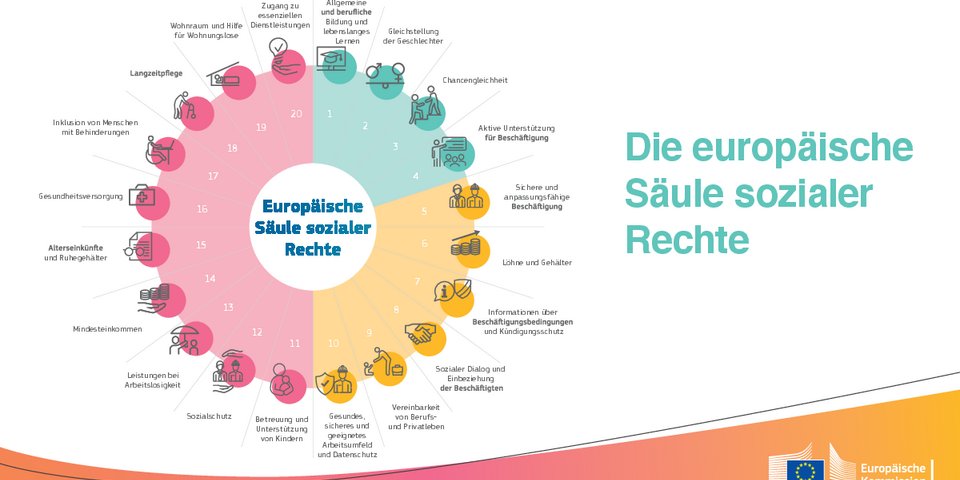
Social policy pays off
Informal Council discusses social investment
VS – 07/2023
At the
informal meeting of the Employment, Social Policy, Health and Consumer Affairs
Council (EPSCO) in Madrid on 14 July a joint Spanish-Belgian initiative on
social investment was discussed. According to EU Commissioner for Jobs and
Social Rights, Nicolas Schmit, the experience of the COVID-19 pandemic has
shown how important social policy is for Europe. Social policies had
contributed significantly to the resilience of the European Union. These
measures are investments in the future of Europe and not simply government
spending.
European Union as a major player
Spain and Belgium stressed the importance of
the European Union in social policy during the informal Council meeting. This
is done through joint social policy initiatives. But budgetary, economic and
fiscal policies also have a significant influence on social policy. It is important
for the two Member States to anchor the common principles of the European
Pillar of Social Rights (EPSR) also in the economic and financial governance of
Europe.
Reform of economic governance
The Council is therefore currently working on a
review of its economic and fiscal governance framework. This is to be adapted
for the EU to the current geopolitical, economic, environmental and social
challenges. The review is to be adopted at the end of the Spanish Council
Presidency. A clear reference to the EPSR and a prioritisation of social
investments is important to both countries.
European excessive deficit procedure
The Spanish-Belgian initiative proposes that
expenditures for social investments no longer be taken into account in the
European deficit procedure. For this to be feasible, the European Commission
and the relevant Committees of the Member States must work on the definition
and operationalisation of social investments: they must be clearly definable
and their success measurable.
Evaluation by the Ministers of Finance
However, anchoring social investment in the
European framework for economic and fiscal governance also means giving finance
ministers the right to evaluate it. Technically, this means that they agree on
a time period in which the previously laid down goals from social and financial
policy must be achieved. There must be consensus that only policy approaches
with quantifiable targets are considered as social investments.
Ultimately, the question is whether social
policy wants to submit to such a control regime. The Madrid Informal Council
has opened the discussion on social investment.
